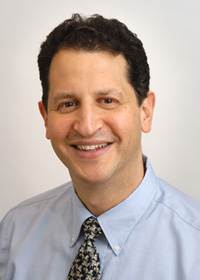Addiction Expert Designated White House Champion of Change. BUSM’s Daniel Alford has a question for you: How often do you drink?

President Obama’s father was an alcoholic whose drunken driving killed a friend and put the elder Obama in the hospital with two broken legs. That unfortunate bit of history may help explain the White House’s interest in addiction, which includes honoring BU addiction expert Daniel Alford with a visit there on August 5.
Alford (SPH’86, MED’92), a School of Medicine associate professor, is the medical director of MASBIRT (Massachusetts Screening, Brief Intervention, Referral and Treatment), a federally funded program at Boston Medical Center and seven other hospitals and community health centers in the state that screens for risky alcohol, tobacco, and drug use. “When you come to see your doctor for your diabetes management or hypertension or just for your annual visit, you’ll be asked questions about unhealthy substance use,” Alford says.
Alford will be in Washington Friday, courtesy of Obama’s Champions of Change program, which hosts weekly White House visits for innovators in various fields. He’ll participate in a roundtable with federal drug policy experts, write a short blog entry about his work, and film a short biographical piece for the White House website.
Through MASBIRT, BMC and participating organizations now have trained health promotion advocates, who work throughout the institutions, from primary care offices to emergency rooms, screening people for risky substance use and assessing what the next step should be to help those with problems. The goal is to identify people at risk of addiction before the addiction consumes them, an approach that Alford says has been overlooked by the medical establishment. “If we waited for patients with kidney disease to need dialysis, that would be malpractice,” he says. “That’s kind of what we’ve done with addiction. We basically ignore unhealthy substance use until the person’s coming in with alcoholism or drug addiction.”
Alford, who joined the BU faculty in 1996, also leads BMC’s program to train medical residents in a new (for nonpsychiatric doctors) subspecialty, addiction medicine. BMC recently appointed its first addiction resident, one of only 20 such residents nationwide. BU Today spoke with Alford about his work and Friday’s event.
BU Today: My doctor asks me, “Do you smoke? Do you drink?” Is that a result of MASBIRT?
Alford: Certainly some doctors were doing it before. But there are ways of asking it, and then there are ways of asking it. You can say, “You don’t drink or use drugs, right?” as opposed to asking it with questions that have been shown to be more reliable. When you phrase a question as, “How often do you do something?” it normalizes it, and patients feel more comfortable answering.
The state would like to expand this approach. The majority of our work this past year has been, how do we sustain these efforts? Is it trying to sustain this health promotion advocate model? Nurses, medical assistants, docs could probably ask those questions. It’s probably going to be different, depending on the treatment center.
Is training in addiction medicine feasible when there are so many addictions out there? Being addicted to drugs or alcohol is different from being addicted to gambling or the Internet or sex.
There’s a lot of commonality, no matter what the substance or behavior. Addiction starts to disrupt someone’s life, despite negative consequences. It turns out that a lot of the neurobiology—what’s happening in the brain—that reinforces those unhealthy behaviors is similar as well. And they respond to a lot of treatments in a similar way.
Have there been advances in treating addiction?
The answer’s definitely yes. A perfect example is methadone maintenance. Methadone was developed for pain, but was found to be effective in treating opiate addiction. There’s a lot of stigma around it and people who don’t believe in methadone for treatment, but there’s more evidence over the last 40 years showing efficacy around methadone than pretty much anything else that I do in primary care.
A lot of behavioral therapies can be effective in treating lots of addictions as well as behavioral addictions, like gambling. All of the medications work better when you include nonpharmacological therapy, like counseling. In order for treatment to work, it needs to be continued. Historically, people got treatment, they stopped using, they then got discharged, they relapsed, and we said, “Aha, the treatment doesn’t work because they relapsed,” as opposed to saying, “The treatment works; it just needs to be continued.” Some people are cured permanently and don’t require extensive treatment. But the large majority needs sustained treatment.
What got you interested in addiction?
When I finished my residency, there was an opportunity, part-time, to be the medical director of a methadone maintenance program at the Boston Public Health Commission. I loved it immediately. I realized there were a lot of success stories within that treatment model that we as physicians didn’t know about.
This BU Today story was written by Rich Barlow. He can be reached at barlowr@bu.edu.